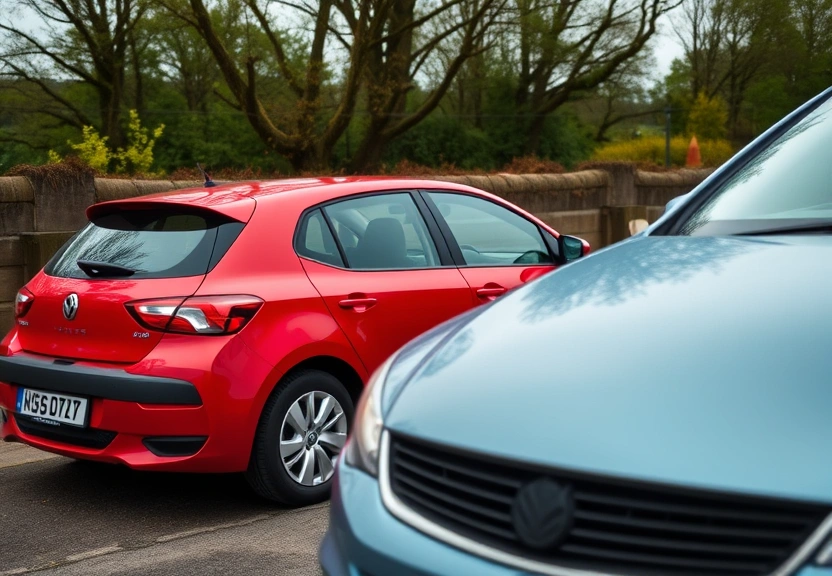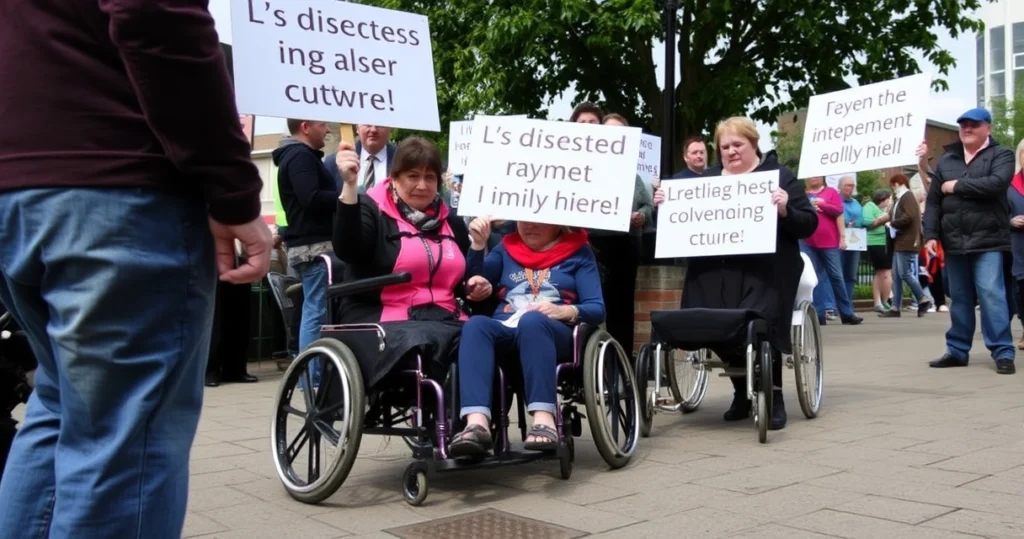UK Study Reveals Car Dependency Linked to Increased Loneliness in Rural Areas
In a groundbreaking study conducted in the UK, researchers have uncovered a troubling correlation between car dependency and loneliness, particularly in rural areas. This research highlights a significant social issue that affects many individuals living in towns and villages where public transport options are limited. The findings suggest that those who rely heavily on cars for transportation are more likely to experience feelings of isolation and disconnection compared to their peers with better access to public transport.

The analysis of official statistics reveals a clear pattern: individuals without adequate transport alternatives report higher levels of loneliness and social isolation. This study calls attention to the vital role that transportation plays not only in mobility but also in fostering social connections. As rural communities continue to grapple with declining public transport services, the implications of this study are both timely and critical.
Understanding Car Dependency in Rural Areas
Car dependency refers to the reliance on personal vehicles for transportation, which is particularly pronounced in rural areas. Due to sparse population density, many rural towns lack comprehensive public transport systems, leaving residents with few alternatives for getting around. This dependency can have far-reaching consequences, not only on individuals’ mobility but also on their social lives.
The Transport Landscape in Rural UK
The transport landscape in rural areas of the UK is characterized by limited bus and train services, which often leads to a reliance on cars. Many rural residents find themselves living in areas where public transport options are infrequent or non-existent. As a result, personal vehicles become essential for daily activities such as commuting to work, grocery shopping, and social interactions.
Impacts of Car Dependency
While car ownership provides convenience, it can also exacerbate feelings of loneliness and social isolation. Here are some key impacts:
- Reduced Social Interaction: Individuals who depend on cars may miss out on spontaneous social engagements that often occur when public transport is more accessible.
- Limited Community Engagement: Car dependency can discourage residents from participating in community events or activities, further isolating them.
- Increased Anxiety and Stress: The pressure to maintain a vehicle can lead to financial strain and heightened anxiety levels.
The Link Between Loneliness and Transport Options
The study conducted by researchers analyzed data on loneliness in relation to transport usage, revealing a direct connection between inadequate transportation and increased feelings of loneliness. The findings indicate that those with access to reliable public transport options are more likely to engage socially, thereby reducing feelings of isolation.
Key Findings from the Research
The following key findings emerge from the research:
- Individuals without access to public transport reported a 30% higher likelihood of feeling lonely.
- Communities with robust public transport systems had lower rates of reported loneliness.
- The availability of transport options was found to correlate positively with community engagement and social interaction.
Addressing Social Isolation Through Improved Transport
Given the findings of this study, it is clear that addressing car dependency in rural areas requires a multifaceted approach. Enhancing public transport systems is crucial for fostering social connections and combating loneliness. Several strategies can be employed to improve transport accessibility and reduce isolation:
Investing in Public Transport Infrastructure
Investment in public transport infrastructure is essential for providing residents with viable alternatives to car dependency. This may include expanding bus routes, increasing service frequency, and developing more reliable train connections. By improving transport options, communities can enhance mobility and promote social engagement.
Community-Based Transport Solutions
Local initiatives can also play a significant role in addressing transportation challenges. Community-based transport solutions, such as ride-sharing programs or volunteer driver schemes, can help those without access to a vehicle. These initiatives not only provide essential transportation services but also foster community interaction and support.
Promoting Awareness and Engagement
Raising awareness about the link between transport options and social isolation is critical. Communities can organize events or campaigns to encourage residents to engage with local transport services and participate in social activities. By promoting the use of public transport, towns can help reduce feelings of loneliness and enhance community cohesion.
FAQs About Car Dependency and Loneliness
1. What is car dependency?
Car dependency refers to the reliance on personal vehicles for transportation, particularly in areas where public transport options are limited or non-existent.
2. How does car dependency contribute to loneliness?
Individuals who rely heavily on cars may miss opportunities for social interaction that occur more frequently with accessible public transport, leading to increased feelings of isolation.
3. What are some signs of social isolation?
Signs of social isolation can include a lack of engagement in social activities, feelings of loneliness, and a general sense of disconnection from the community.
4. How can communities address the issue of car dependency?
Communities can invest in public transport infrastructure, implement community-based transport solutions, and promote awareness of the importance of social engagement and transport options.
5. Are there any alternatives to car travel for rural residents?
Yes, alternatives can include carpooling, community transport services, cycling, and walking, depending on the distance and available resources.
Conclusion
The UK study highlighting the link between car dependency and loneliness in rural areas sheds light on a pressing social issue. As car dependency continues to shape the lives of many residents, it is imperative for policymakers, community leaders, and stakeholders to prioritize improvements in public transport options. By doing so, they can help alleviate feelings of isolation, foster social connections, and enhance the overall quality of life for individuals living in rural communities. Addressing these transportation challenges not only benefits individual well-being but also strengthens the fabric of rural society as a whole.
📰 Original Source
Este artigo foi baseado em informações de: https://www.theguardian.com/uk-news/2025/jul/06/public-transport-car-dependancy-loneliness-uk-study


